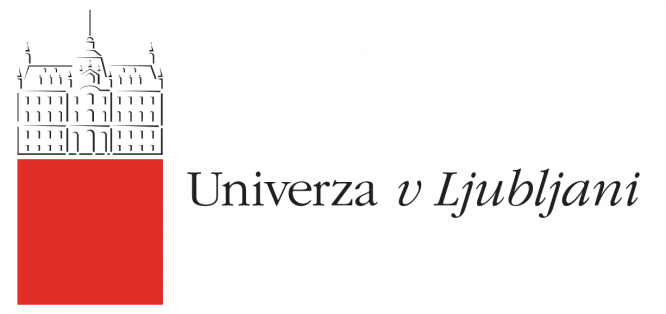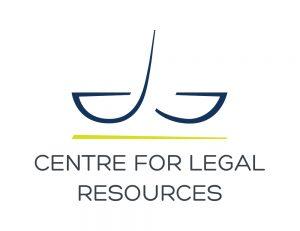Access to justice for children with mental disabilities
Daily, millions of children have their rights violated. They experience violence and abuse, are denied access to education, healthcare or social benefits, separated from their families. UNICEF and MDAC created this video to raise awareness towards the disadvantaged situation of children with mental disabilities in accessing justice for human rights violations.
We are pleased to release the results of a two-year study investigating access to justice for children with mental disabilities across ten EU Member States. The results show that few governments have taken concrete action to open the doors of justice to children with intellectual disabilities and children with psycho-social disabilites, despite increasing evidence that they are at a higher risk of experiencing multiple human rights violations. Project outputs propose standards and guidance to facilitate further detailed research in this area; set out indicators based on international law which address the rights of children with mental disabilities; and provide a summary of key national-level barriers identified during the project. To contribute to change at the level of practice, project partners have also developed a comprehensive education tool for professionals working in the administration of justice, which can be used by judicial studies academies, police and bar associations.
- A summary report on the project
- Guidance on the collection and dissemination of data on access to justice for children with mental disabilities
- Synthesis of findings on the collection and dissemination of data on access to justice for children with mental disabilities
- A report on international standards and findings on access to justice for children with mental disabilities in ten EU Member States
- Country factsheets based on the findings of the research carried out in the ten participating countries
- A training guide for practitioners in the administration of justice on the rights of children with mental disabilities [beta]
Project countries: Bulgaria, Czech Republic, Hungary, Ireland, Latvia, Lithuania, Romania, Slovenia, Spain, United Kingdom.
Project background
"Access to justice" is a fundamental principle of the rule of law. In procedural terms, it encapsulates the right to be able to access the mechanisms of justice, including the courts. In more substantive terms, it flows from the right to an effective remedy for fundamental rights violations set out in Article 8 of the Universal Declaration on Human Rights. It is closely linked with the principle of equality before the law.
Children with mental disabilities have commonly been denied these rights. Only in recent years, since the adoption of the UN Convention on the Rights of the Child, and then the UN Convention on the Rights of Persons with Disabilities, have these children begun to be recognised as bearers of rights, and not just as passive recipients of care. This shift of attitudes, however, has yet to translate into systemic change within national justice systems.
Across Europe, children with mental disabilities disproportionately experience a variety of human rights violations, including the denial of education, placement in institutions which segregate them from their communities, and are at a higher risk of becoming a victim of ill-treatment, exploitation and other forms of abuse. They are also overrepresented in, and underserved by, criminal justice systems, as alleged offenders and victims. Their testimonies are often ignored by justice systems which remain inflexible and paternalistic. Often they are not even consulted about issues which are likely to have a fundamental impact on their lives.
Our project on "Access to Justice for Children with Mental Disabilities" aims to contribute research into the barriers that children with intellectual disabilities and children with psycho-social disabilities face when they seek enforcement of their rights through legal systems. The research, which was conducted over a two-year period, synthesises international and European legal standards, presents findings from extensive desk-based and empirical research in each of the project countries, and highlights the voices of parents, children, lawyers and other professionals involved in the administration of justice. It highlights the fact that countries across Europe have taken few steps to increase the overall accessibility of justice systems to these children, and many children are left vulnerable to serious human rights violations in institutions where they have no access to independent complaints mechanisms.
One of the most striking findings is that there is a complete lack of data available about how many children with mental disabilities come into contact with justice systems, the nature of their impairments, or the outcomes of proceedings. Whilst all countries have national systems for monitoring human rights, researchers in participating countries found that they rarely considered the position of this particularly marginalised group of children.
At the domestic level, limited knowledge and exclusionary attitudes on the part of judges, lawyers, police, social workers and psychologists, among others, was found to be the norm. While a few promising practices were found by researchers - such as the establishment of child-friendly interview rooms, and the use of intermediaries - these tended to be one-offs.
We believe that addressing the rights of children with mental disabilities to gain justice will not just be beneficial for them. The process of reform requires that the courts become more open, flexible and responsive to persons with disabilities, as well as other marginalised groups. It means improving the quality of lawering, encouraging the development of more accessible information about rights and remedies, and ultimately improving the quality of justice itself.
For further information, please get in touch: mdac@mdac.org.
Partners
Centre for Disability Studies, University of Leeds, UK
Centre for Disability Law and Policy, National University of Ireland Galway
Global Initiative on Psychiatry Sofia (GIP-Sofia), Bulgaria
The League of Human Rights (LIGA), Czech Republic
Dr Judit Zeller, Hungary
The Resource Centre for People with Mental Disability (RC ZELDA), Latvia
Mental Health Perspectives (formerly known as the Global Initiative on Psychiatry, Vilnius Office) (PSP), Lithuania
The Centre for Legal Resources, Bucharest, Romania
Faculty of Social Work, University of Ljubljana (UL-PSF), Slovenia
"Bartolome de las Casas" Institute of Human Rights, Carlos III University of Madrid Spain
Expert Panel Members
Andrea Coomber, Director of JUSTICE, UK
Camille Latimier, Human Rights Officer, Inclusion Europe
Dainius Puras, UN Special Rapporteur on the Right to Health
Gerison Lansdown, international children's rights advocate
Maria Herczog, Member of the UN Committee on the Rights of the Child, President of Eurochild
Stephanie Burle, international consultant on children's rights, previously project manager
Ursula Kilkelly, Professor and Dean of Law, University College Cork, Ireland
 |
 |
|
 |
 |
 |
 |
 |
 |


